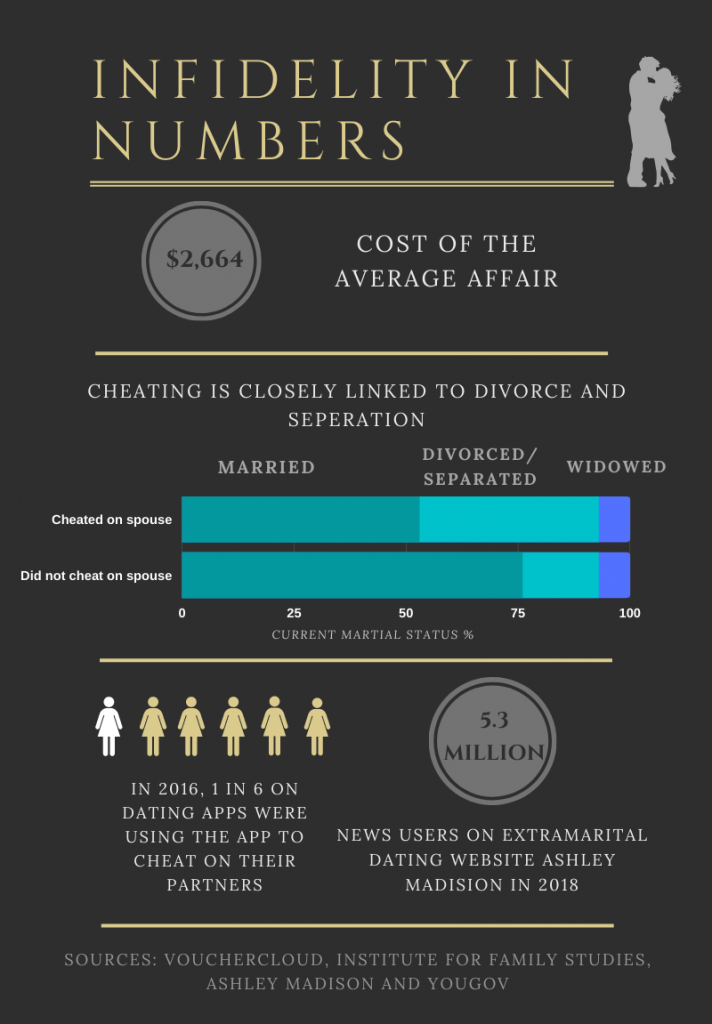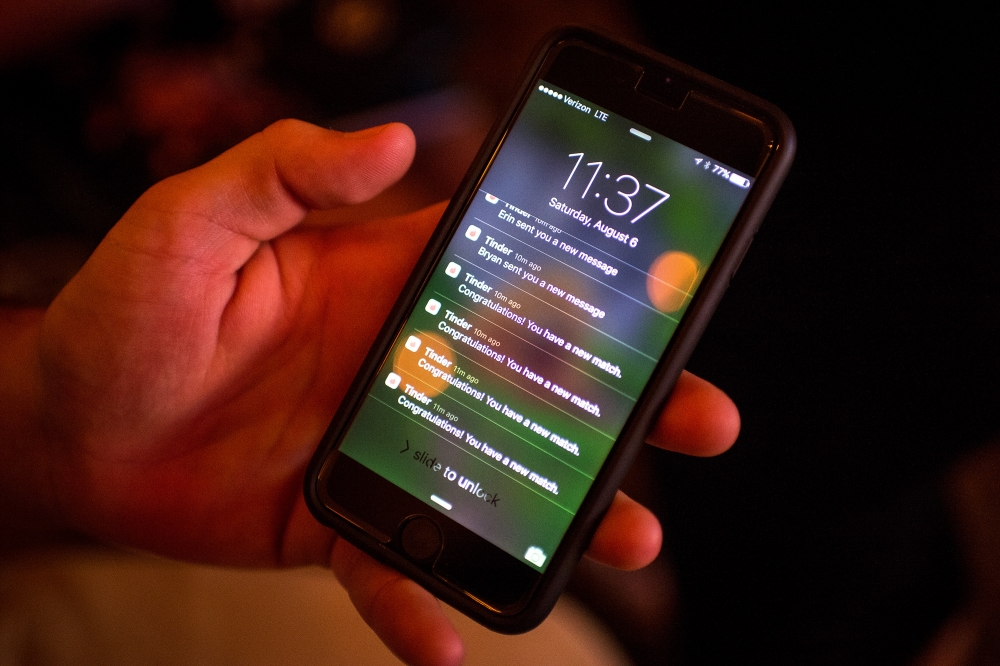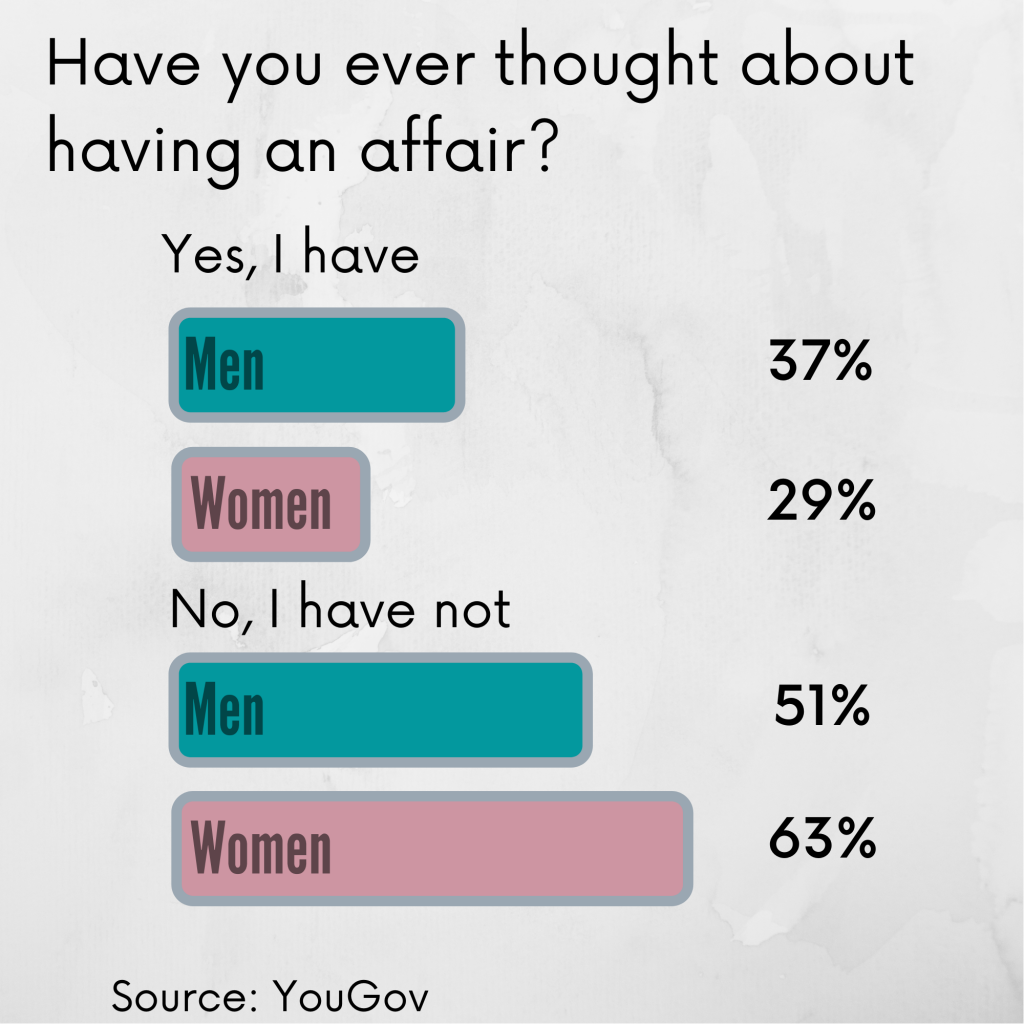By Rebecca Cook
August 10 2020, 17.00
Follow @SW_Londoner
Much like everything else, the nature of infidelity and divorce has changed during the coronavirus pandemic.
Divorce inquiries have increased by at least 40% during the lockdown, according to divorce lawyers.
While some households found lockdown a precious opportunity to spend time together, others found it extremely difficult and many who were considering divorce found their resolution to do so.

Vanessa Lloyd Platt is the founder and director of family law firm Lloyd Platt & Co and said of inquiries: “The numbers here have just been astonishing. It went very quiet the first week of lockdown, then suddenly it was like the heavens opened.
“People have said they have been bored stiff during lockdown, meanwhile we have not had one moment to be bored.”
Divorce proceedings have continued virtually, with cases involving domestic abuse or child protection taking urgent priority.
Director of family law at Freeths Solicitors Irpreet Kohli said: “The court system did as much as they could to very quickly prioritize urgent cases. Unfortunately, the knock on effect is things that aren’t urgent are just pulled from diaries and postponed.
“The backlog of paperwork at the courts now is absolutely horrific; its months and months until you get a court hearing.”
The end of summer and Christmas are typically the busiest periods at Lloyd Platt & Co, when couples have spent prolonged periods of time in a close environment.
Ms Lloyd Platt said: “This undiluted time is enough to snap a relationship in half. It was obvious to us that there could be a huge surge during lockdown.”
Former government scientist Neil Ferguson’s lockdown rendezvous with his married lover demonstrated extramarital affairs could be continued during the pandemic, albeit not as inconspicuously.

Despite the fact it is illegal to access someone else’s phone without their consent, Ms Lloyd Platt described how couples stuck together have been doing so and have discovered relationships they would not have known of otherwise.
Extramarital dating website Illicit Encounters recorded an 18% rise in male users and a 12% rise in female users in April.
In their 2019 Infidelity Index they pinpointed the locations of their 1.1 million users, amounting to 3% of the UK adult population.
Given the furtive nature of infidelity, figures can wildly vary. One of the lowest published rates is 14%.
In comparison to the 5% that believe their partner has cheated or will do so, according to findings in the Journal of Social and Personal Relationships, the margin between expectation and reality is marked and suggests it happens more frequently than suspected.
Ms Kohli said: “There’s clear definition in the legislation that there has to have been sexual intercourse with someone else for there to be adultery. So just having a report showing that someone’s going into a property and not coming out until three in the morning; yes, it suggests it, but it doesn’t necessarily prove it.”

Just as dating apps have affected infidelity, so have technological advances in methods of detection as people no longer need to catch their partners in the illicit act.
A sophisticated infidelity DNA test hit virtual shelves on the website AffinityDNA earlier this year. For a mere £299, a suspicious customer can discover whether their partner has cheated by sending ‘evidence’ for DNA analysis.

A product reviewer in May said on the website: “Thank you very much for your help in this (very difficult) matter. I sincerely appreciate the service.”
However, under the Human Tissue Act 2004 possession of someone’s ‘bodily material’ to perform DNA analysis on it without their consent is a crime and punishable by three years in prison. In this instance, AffinityDNA assumes the customer has obtained consent and not committed DNA theft.
Infidelity tests that provide less information and purely detect the presence of semen have long been available to mistrustful partners.
The Garden Health & Beauty Store has stocked the £42 Checkmate Infidelity Test for the past 25 years and sells around one thousand a year, in every instance as a lone purchase.
The Garden spokesperson Harry Ganz reported the test has seen a 15% rise in sales in the last six months, compared to last year.
Mr Ganz said: “It’s become more popular, whether because people are now more suspicious of their partners or because the actual product is a bit more known, it’s not possible to tell. The feedback you get is very limited.”
Main Stop Testing SVCS has offered a similar infidelity testing product ever since the Clinton–Lewinsky scandal. A spokesperson from the testing service said: “It really gives people true piece of mind as another tool to find out if their partner has been unfaithful.”
In June, legislation for no-fault divorce passed through the House of Commons, allowing couples to petition for divorce jointly instead of having to play a blame game. Ms Kohli believes it will makes the process more pleasant, particularly for couples parting amicably.
Ms Lloyd Platt concluded: “Hopefully there won’t be another lockdown. It has been the best thing for divorce lawyers, and the worst thing for humanity.”



